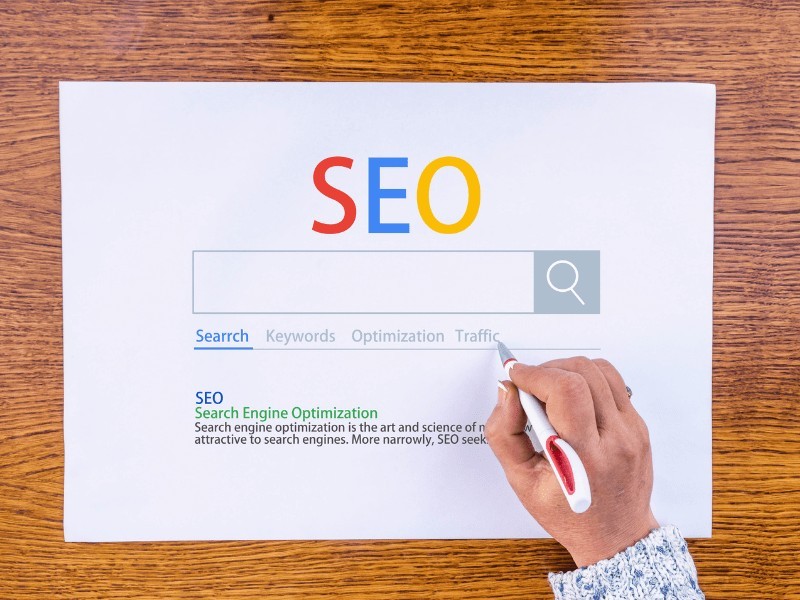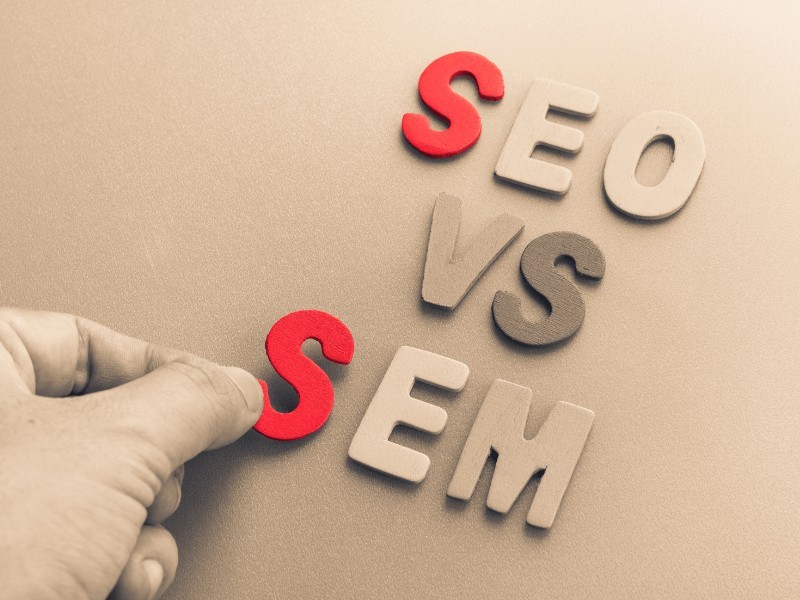The internet and search engines are a part of our everyday lives, so it only makes sense that businesses need the tools to help their sites appear in relevant searches. As digital marketers, it’s important that we understand how to use blogs, content, and indexing as well as tools like SEO and SEM – but what are SEO and SEM and how do they relate to each other and our overall digital marketing strategy?
What Is SEO?
Search Engine Optimization (SEO) refers to a variety of practices and standards we apply to websites to help them appear in user searches. While most people think of keywords when they hear SEO, it goes far deeper than peppering search terms into text. SEO also encompasses content optimization, website structure, site indexing, site responsiveness, crawlability, security, and overall user experience.
SEO doesn’t stop on the website, however. The practice also involves link-building with other websites to help build a website’s trustworthiness and authority. The more websites that point to your website about a subject, the more reliable your content seems to search engines, and the more likely your site is to appear high in search results.

What is SEM?
Search Engine Marketing (SEM) involves engaging with paid advertising to ensure that your brand shows at the top of a page during a user’s search. Google ads and other PPC campaigns are an example of strategies digital marketers employ as part of an SEM strategy. SEM relies on setting up and optimizing ads based on your budget. You create an ad campaign with a specific search engine, choose the search terms you want your ad to appear with, and set your budget based on the number of clicks you hope to get on your ad.
Where SEO and SEM Converge
SEO and SEM essentially have the same goal, to get your website at the top of user searches. The difference is primarily in how they appear. With SEO, you work to build your website so that it shows up organically on the first page of searches (ideally as one of the first organic links in the search). With SEM, you pay the search engine to display your link as an ad over, alongside, or in between organic search results.
Both strategies also seek to drive traffic to your website. With SEO, you hope to draw people to your site through organic searches, hoping the snippets that appear alongside a user’s search will entice them to click the link to learn more. With SEM, you create a custom snippet for the ad, using storytelling and sales techniques to entice a user to click the ad and come to a specific page on your site.
Where SEO and SEM Diverge
Now we come to the primary difference between SEO and SEM – and how both are key parts of an overall digital marketing strategy. SEO is important to the overall life and strength of your website and the success of your digital marketing strategy. Meanwhile, a targeted SEM campaign can help draw attention to a new offering, major changes, or special offers you have for your business.
Media Components Has the SEM and SEO Tools to Help You Succeed
Are you ready to step up your digital marketing strategy and bring your business to the next level? Contact us today to see how we can use our expertise to help your business succeed.




